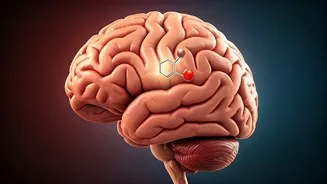Stress and Cortisol
Stress significantly impacts our bodies, often triggering a cascade of hormonal responses. When faced with stress, the body releases cortisol, a hormone
that prepares us for "fight or flight." Chronically elevated cortisol levels can lead to increased appetite and cravings, particularly for high-calorie, sugary, or fatty foods. The body interprets stress as a signal to store energy, making it more likely to crave these types of foods. This can further complicate matters, as the emotional eating habits often exacerbate stress levels, creating a negative feedback loop. Therefore, managing stress is crucial for controlling both cortisol levels and the associated changes in appetite.
Premenopause & Weight
Premenopause, the period leading up to menopause, brings significant hormonal shifts that affect metabolism and weight. As estrogen levels fluctuate and gradually decline, the body's ability to maintain muscle mass might be challenged. Muscle mass is critical for maintaining a high metabolic rate, and a decrease in muscle can lead to a slowing of metabolism. This decline could also make it harder to manage weight. It's often during this period that women find it more difficult to lose weight or experience unexpected weight gain, even with dietary changes. Understanding these hormonal influences is key to making informed lifestyle adjustments during this transitional phase.
Muscle Mass Changes
Muscle mass plays a vital role in our metabolism and energy balance. Maintaining a healthy level of muscle mass is critical for ensuring a more efficient metabolism. As we age, or due to hormonal changes, muscle mass can decrease. This reduction in muscle tissue then slows down the rate at which our bodies burn calories, impacting weight management and body composition. For instance, the loss of muscle mass is often associated with the aging process and reduced physical activity. Conversely, regular exercise, especially strength training, helps preserve and build muscle mass, thereby supporting a healthier metabolism and potentially combating cravings.
Hormones and Metabolism
Hormonal fluctuations are central to metabolic processes. Hormones such as estrogen, progesterone, and thyroid hormones regulate how our bodies use and store energy. For example, fluctuations in estrogen during the menstrual cycle affect metabolism and appetite, influencing food cravings. Insulin, too, is a critical hormone for regulating blood sugar levels and, therefore, metabolism. Disruptions in these hormonal processes can lead to changes in appetite, increased cravings, and alterations in how efficiently the body burns calories. This is why a balanced approach that considers these factors is essential for overall health and weight management.
Insulin Sensitivity Decline
Insulin sensitivity can affect appetite, and its decline is associated with increased cravings. Insulin helps to regulate blood sugar levels by allowing glucose to enter cells for energy. When insulin sensitivity decreases, the cells become less responsive to insulin. This can result in elevated blood sugar levels, and the body then often signals for more food intake to compensate. Insulin resistance is often linked to lifestyle factors such as poor diet, inactivity, and chronic stress. Addressing insulin sensitivity through dietary modifications, exercise, and stress management can help reduce cravings and promote better metabolic health.
Sustainable Lifestyle Helps
Adopting a sustainable lifestyle is crucial for managing appetite, cravings, and overall well-being. A sustainable lifestyle typically incorporates a balanced diet rich in whole foods, regular physical activity, effective stress management techniques, and sufficient sleep. A nutritious diet supports stable blood sugar levels, thereby reducing cravings for processed foods and sugary items. Regular exercise helps maintain muscle mass, improves insulin sensitivity, and regulates hormonal responses, which in turn benefits metabolism. Moreover, consistent stress-reducing practices, like meditation or yoga, help to regulate cortisol levels, thereby helping in appetite control and a more balanced emotional state. Prioritizing quality sleep further supports hormonal balance and metabolism, reinforcing the benefits of a sustainable lifestyle for achieving long-term health.



















